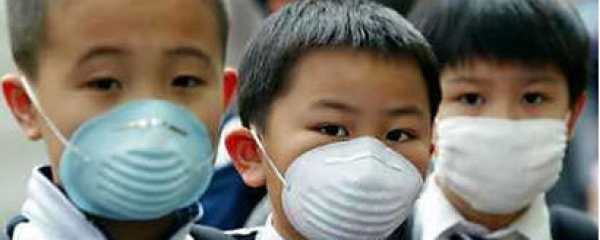
“One Life” by Kevin Brown
Fiction, LiteratureI hold my palm out flat and he takes it in his twitching fingers.
He looks up at me, then back at my hand. At me. My hand.
He smiles and shakes his head. “Good fortune, gwai lo.” Patting my hand, he says, “Long life.”
I snatch my hand away and tell him he’s wrong. I say, “You’re a liar,” and step out, disappearing into the crowd.
At a food outlet, I stop and order a box of Indian curry.
“Something else?” the man taking my order says, and I tell him, “Not unless you’ll touch the food with your bare hands.”
I move on, taking large bites of curry and rice with my fingertips. It’s cold and gummy inside my mouth, and the chicken meat’s not chicken.
I turn down an alley that’s empty except for a pair of small legs sticking straight up out of a trash dumpster. Beside the legs, a baby carriage. After a few minutes, the legs seesaw at the waist and a frail girl slides over the lip of the dumpster, back to the ground. She’s holding a glass bottle in each hand.
She places the bottles in a plastic bag hanging on the carriage handle. I walk toward her, licking slimy green curry off each finger. The light is weak, making the hall fluorescent green. When she sees me, she freezes, her eyes wide, and grabs the carriage, pushing it down the alley.
“Wait,” I tell her in Cantonese. I say, “I won’t hurt you.”
Over her shoulder she’s watching me, the carriage rattling on the rough floor. A wheel catches on a garbage bag, turning the carriage sideways, almost tipping it.
I run toward her.
Near the dumpster, something like rotting meat cobwebs my head and I cover my nose with my arm.
“Please,” I tell her. “Let me help.”
She rights the carriage, never taking her eyes off me. Her cheeks and clothes are smudged in something tar black and she smells like the dumpster.
“Dau tze,” she says, her teeth rotten and knotted, and I tell her, “You’re welcome.”
Inside the plastic bag, there are several beer and wine bottles. Inside the carriage, a baby, completely covered by a dirty white blanket.
I’ve heard about these children. How the Chinese, the pregnant mothers, would come over and give birth to their babies, then after a while go back to the mainland without the children. Most die. Some are taken care of by other homeless children.
“The lucky ones,” Mei Lin told me, “they have to find things to sell.”
Like bottles. Cans and trash.
“Family?” I ask the girl, pointing at the baby.
And she says, “Sister,” never taking her eyes off me.
Reaching real slow like into my pocket, I pull out the Coke bottle, hold it up, and place it in the bag.
She bows, watching.
And suddenly, I lean down and start digging through the piles of garbage. Looking for bottles—for anything—I tear holes in the bags and empty them on the floor.
Every one I move, the odor goes through my nose and my eyes water. As bad as it is, the dumpster smell is worse.
I find a Blue Girl beer bottle and slip it inside the bag. She watches me a few seconds, then gets down and sifts through the junk beside me.
I find a bottle.
She finds a can.
I’m digging faster and faster, running my hands through dark wet trash, clawing for anything worth something. The smell getting stronger, I pull bottles out like babies from a womb. Saving them. Harvesting them.
After I’ve checked all the bags I stand, my pants cold and sticking to my knees and thighs.
The little girl is still digging, holding a bag bottom up and emptying it out in wads of muck that scatter like a virus.
I watch her, wiping my mouth with the back of my hand.






















